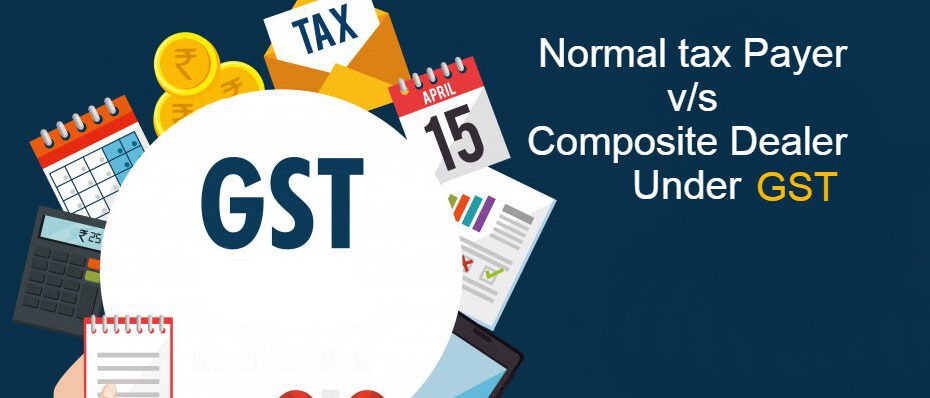Composite Dealer
An Assessee who comes under the Composition Scheme and is needed to comply with all the conditions mentioned therewith, is termed as a Composition dealer. Composite dealer is required to adhere with the rules & regulations created by the GST Council for Composition Scheme.
Composition Scheme is referred as simple & easy scheme under GST for taxpayers. Small taxpayers can get relive of endless GST formalities & pay GST at a fixed rate of turnover.
A taxpayer whose turnover is below Rs 1.5 crore* can go for Composition Scheme. When we talk about the North-Eastern states and Himachal Pradesh, the limit is now Rs 75* lakh.
According to the CGST (Amendment) Act, 2018, a composition dealer can also supply services to an extent of 10% of turnover, or Rs.5 lakhs, whichever is higher.
All businesses’ turnover registered with the same PAN should be taken into consideration to calculate turnover. The main point here is to be noted is that the GST composition scheme limit is based on the turnover of all businesses which are registered with the same PAN, and hence all businesses under the same PAN can either be registered regular dealers or can be composition dealers but not a combination of both.
How Can a Taxpayer Opt for Composition Scheme?
To choose for composition scheme a taxpayer need to file GST CMP-02 with the government. This can be done easily through online by get logging into the GST Portal.
How Composition Dealer raise bill?
Tax invoice cannot issue by the composition dealer since a composition dealer cannot charge tax from their customers. They need to pay tax from their own pocket.
Thus, the dealer needs to issue a Bill of Supply.
What are the Returns Need to File by a Composition Dealer?
- A dealer is needed to pay tax in a quarterly statement CMP-08 by 18th of the month after the end of the quarter.
- Form GSTR-4 need to be filed annually by 30th April of next FY from FY 2019-20 onwards.
- GSTR-9A is known as annual return which is to be filed by 31st December of the next financial year. It was waived off for FY 2017-18 & FY 2019-20.
Also, note that a dealer registered under composition scheme that means composite dealer is not required to maintain detailed records.
What are the benefits of Composition Scheme?
The following are the benefits of registering under composition scheme:
- Less compliance (returns, maintaining books of record, issuance of invoices)
- Limited tax liability
- As taxes are at a lower rate therefore high liquidity
Normal Taxpayer
Largest section of the businesses in India come under this category. The applicant does not require furnish any deposit to come in the category of a normal taxpayer. There is no expiry date for taxpayers who come under this category.
In the GST Regime,
- businesses whose turnover exceeds Rs. 40 lakhs*
- businesses whose turnover exceeds Rs. 10 lakhs* for North East and hill states
Required to register themselves as a normal taxable person. This procedure of registration is called GST registration.
For certain businesses, registration under GST is essential. If the company carries on business without GST registration, it will be an offence under GST and leads to heavy penalties.
Normal taxpayers must file: –
- GSTR-1 for sales details
- GSTR-3B returns for reporting summary of sales and ITC.
- Pay tax and then file GSTR-3B.
A normal taxpayer will be needed to pay output tax on his supplies at a standard rate &any credit of input is available only when his/her own supplier files a return online which shall reconcile with his/her own return. So, a broad piece of his/her working capital will always remain blocked in the form of input credit.
For normal taxpayers, most of his/her working capital will be blocked as Input Tax credit because he /she can gain the input only if his/her supplier has filed the return. The supplier needs to pay tax at standard rate and credit of the input will only be availed when his/her supplier files the return. In composition levy, dealer does not need worry about his supplier filing return as he/she cannot take credit and will pay tax at a nominal rate.

